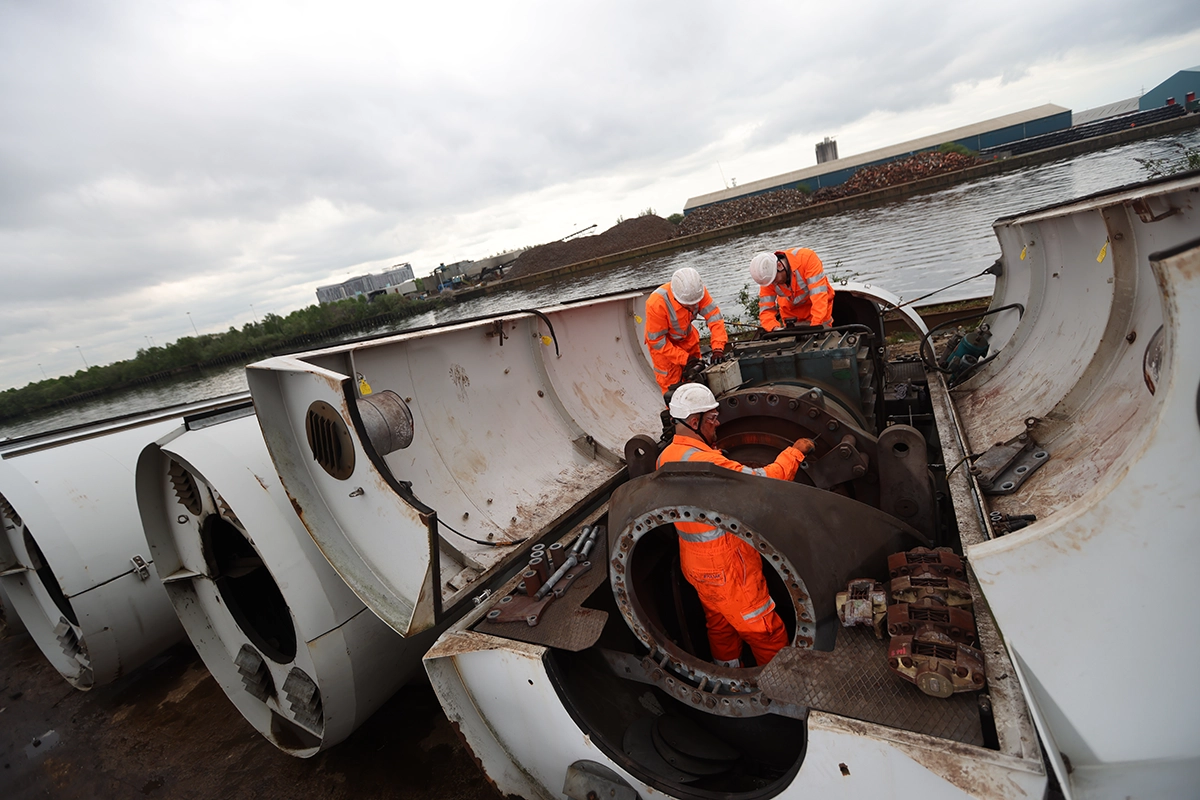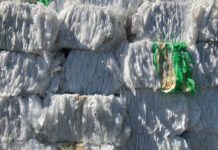
A circular supply chain for wind turbines in Scotland is one step closer, says sustainable materials firm EMR, thanks to a pilot processing centre the group has opened at its Glasgow South Street site.
While wind power delivers an increasingly high percentage of the UK’s energy demands, the oldest wind turbines are now reaching the end of their operational lifespans. With nearly 90% of a wind turbine containing infinitely recyclable materials – such as steel, aluminium, and copper – EMR says the new facility enables these metals to re-enter the circular economy.
Some of the challenges and opportunities presented by the quest for circularity in the wind sector are explored in this article.
EMR is also working with suppliers and customers to give components a second useful life via reuse and refurbishing, significantly reducing the embedded carbon of this green technology.
In contrast to the tower and nacelle, wind turbine blades are typically constructed with a mixture of balsa wood and fibreglass, making treatment options for these components a far bigger challenge. The new site has achieved a permit to receive and store blades to trial innovative new techniques to handle and downsize them to enable repurposing, recovery, and recycling to be undertaken.
This means the new Wind Turbine Processing Centre can accept every part of a wind turbine, enabling them to be a valuable component and material bank, not a waste problem.
The project is part of Re-Rewind, a partnership between industry and academia – spearheaded by EMR – which aims to create a circular supply chain for the rare earth magnets used within modern wind turbines. Research and development projects to boost magnet reclamation will also be based at the new processing centre. Re-Rewind is part-funded by the UK Government through Innovate UK.
The new facility is, itself, an embodiment of the “reuse” ethos it promotes, having been built inside a more than 100-year-old warehouse that was originally constructed for the North British Engine Works (also known as the Barclay Curle Complex) in around 1913.
The facility will also see EMR partner with Scottish businesses across the country to create a circular supply chain for wind turbines, while also bringing skilled green jobs to Glasgow, too.
‘Great example’
Morag Watson, Director of Onshore at Scottish Renewables, said: “With sustainability at its heart, Scotland’s renewable energy sector is well placed to lead the way in developing industry standards that prioritise resource recovery, reuse, repair and remanufacture.
“The wind turbine processing centre being developed by EMR is a great example of how companies are harnessing the opportunities presented by a circular economy and consolidates Scotland’s reputation for leading the way in circular renewables.”
Supply chain
Dr Charlotte Stamper, Strategic Partnerships Manager at EMR said: “The positive impact of renewable technologies such as wind power is clear. However, with this facility, all materials used in the construction of wind turbines can be put back into the supply chain, creating a circular economy.
“EMR’s decommissioning hub will create a new pathway for used turbines to be efficiently dismantled, with most components either being immediately recycled by our expert teams or refurbished and made available for reuse.
“EMR’s new Wind Turbine Processing Centre will bring together some of the most exciting research when it comes to reusing or recycling wind turbines, ensuring this green technology is even more sustainable.
“I’m very proud of the leading role that EMR is taking in meeting this challenge head on.”
For more information on EMR, visit the website at emrgroup.com.







